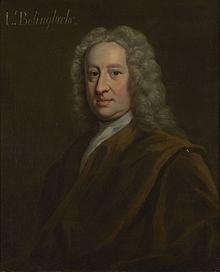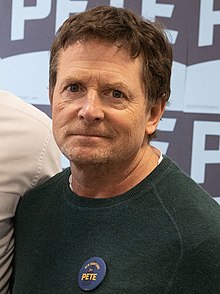Portal:Canada
| Showcase | Contents | Contributing |
Introduction
Canada is a country in North America. Its ten provinces and three territories extend from the Atlantic Ocean to the Pacific Ocean and northward into the Arctic Ocean, making it the world's second-largest country by total area, with the world's longest coastline. Its border with the United States is the world's longest international land border. The country is characterized by a wide range of both meteorologic and geological regions. With a population of just over 41 million people, it has widely varying population densities, with the majority residing in urban areas and large areas of the country being sparsely populated. Canada's capital is Ottawa and its three largest metropolitan areas are Toronto, Montreal, and Vancouver.
Canada is a parliamentary democracy and a constitutional monarchy in the Westminster tradition. The country's head of government is the prime minister, who holds office by virtue of their ability to command the confidence of the elected House of Commons and is appointed by the governor general, representing the monarch of Canada, the ceremonial head of state. The country is a Commonwealth realm and is officially bilingual (English and French) in the federal jurisdiction. It is very highly ranked in international measurements of government transparency, quality of life, economic competitiveness, innovation, education and human rights. It is one of the world's most ethnically diverse and multicultural nations, the product of large-scale immigration. Canada's long and complex relationship with the United States has had a significant impact on its history, economy, and culture.
A developed country, Canada has a high nominal per capita income globally and its advanced economy ranks among the largest in the world by nominal GDP, relying chiefly upon its abundant natural resources and well-developed international trade networks. Recognized as a middle power, Canada's strong support for multilateralism and internationalism has been closely related to its foreign relations policies of peacekeeping and aid for developing countries. Canada is part of multiple international organizations and forums. (Full article...)
Featured article -
The Quebec expedition, or the Walker expedition to Quebec, was a British attempt to attack Quebec in 1711 in Queen Anne's War, the North American theatre of the War of Spanish Succession. It failed when seven transports and one storeship were wrecked and some 850 soldiers drowned in one of the worst naval disasters in British history. (Full article...)
Featured biography -
Michael Andrew Fox OC (born June 9, 1961), known professionally as Michael J. Fox, is a Canadian and American activist and retired actor. Beginning his career as a child actor in the 1970s, he rose to prominence portraying Alex P. Keaton on the NBC sitcom Family Ties (1982–1989) and Marty McFly in the Back to the Future film trilogy (1985–1990). Fox went on to star in films such as Teen Wolf (1985), The Secret of My Success (1987), Casualties of War (1989), Doc Hollywood (1991), and The Frighteners (1996). He returned to television on the ABC sitcom Spin City in the lead role of Mike Flaherty (1996–2000). (Full article...)
Selected panorama -
National symbol -
In Canadian folklore, Mussie is a creature said to live in Muskrat Lake in the Canadian province of Ontario. It is variously described, for example, as a walrus or as a three-eyed Loch Ness Monster-like creature.The legend of Mussie likely began around 1916, though legend claims that Canadian pioneer Samuel de Champlain wrote about it in the early seventeenth century. Mussie has become a part of the local culture and a fixture in the local tourism industry. (Full article...)
Selected vital article -
The music of Canada reflects the diverse influences that have shaped the country. Indigenous Peoples, the Irish, British, and the French have all made unique contributions to the musical heritage of Canada. The music has also subsequently been influenced by American culture because of the proximity between the two countries. Since French explorer Samuel de Champlain arrived in 1605 and established the first permanent French settlements at Port Royal and Québec in 1608, the country has produced its own composers, musicians and ensembles. (Full article...)
Selected picture -
Current events
- December 16, 2024 – Resignation of Chrystia Freeland
- Chrystia Freeland resigns as Canada's Deputy Prime Minister and Minister of Finance amid disagreements with Prime Minister Justin Trudeau on increased government spending and how to handle possible U.S. tariffs imposed by the incoming Trump administration. (Reuters)
- December 11, 2024 – Russo-Ukrainian War
- The Parliament of Canada approves the allocation of CA$764 million (US$587 million) in military aid to Ukraine. (Ukrainska Pravda)
- December 3, 2024 – Red Sea crisis
- The Government of Canada officially designates the Yemen-based Houthi movement as a terrorist organization due to the group's attacks on civilian and military vessels in the Red Sea. (Al Jazeera)
- November 20, 2024 – November 2024 Northeast Pacific bomb cyclone
- Two people are killed and more than 570,000 people are without power when a bomb cyclone makes landfall over the West Coast of the United States and British Columbia, Canada. (CNN) (NBC News)
- November 15, 2024 –
- The Canadian Union of Postal Workers go on strike after failing to renegotiate their contract with Canada Post. (AP)
- October 25, 2024 –
- A man fatally shoots two of his family members before killing himself in Huntsville, Ontario, Canada. (CTV News Barrie)
Did you know -

- ... that the inclusion of the Canadian song "How Long" in a bootleg Russian DVD resulted in a sixteen-year search for the track's creator?
- ... that the documentary comedy films Being Canadian and When Jews Were Funny explore the filmmakers' cultural identity through interviews with dozens of comedians?
- ... that Mount Churchill, a volcano in Alaska, distributed ash as far as Europe and may have driven migration from Canada to southwestern North America?
- ... that Rod Zaine scored his high school's championship-winning single in Canadian football before playing in the National Hockey League?
- ... that the entire inventory of historic string instruments in Canada's Musical Instrument Bank are loaned to musicians in a competition held every three years?
- ... that Eagle-Dogtooth Provincial Park in Ontario, Canada, contains part of the Experimental Lakes Area, a controlled area for conducting scientific experiments in lakes?
- ... that Pituamkek National Park Reserve, Canada's newest national park, protects a chain of barrier islands that have been used for fishing and hunting by the Mi'kmaq for 4,000 years?
Featured list -
The Grey Cup is the championship of the Canadian Football League (CFL) and the trophy awarded to the victorious team. The trophy is named after Albert Grey, the Governor General of Canada from 1904 until 1911. He donated the trophy to the Canadian Rugby Union in 1909 to recognize the top amateur rugby football team in Canada. By this time Canadian football had become markedly different from the rugby football from which it developed. Although it was originally intended to be awarded only to amateur teams (like the Stanley Cup), over time, the Grey Cup became the property of the Canadian Football League as it evolved into a professional football league. Amateur teams ceased competing for the Cup by 1954; since 1965, the top amateur teams, playing in U Sports, have competed for the Vanier Cup. (Full article...)
Main articles
Associated Wikimedia
The following Wikimedia Foundation sister projects provide more on this subject:
-
Commons
Free media repository -
Wikibooks
Free textbooks and manuals -
Wikidata
Free knowledge base -
Wikinews
Free-content news -
Wikiquote
Collection of quotations -
Wikisource
Free-content library -
Wikiversity
Free learning tools -
Wikivoyage
Free travel guide -
Wiktionary
Dictionary and thesaurus































